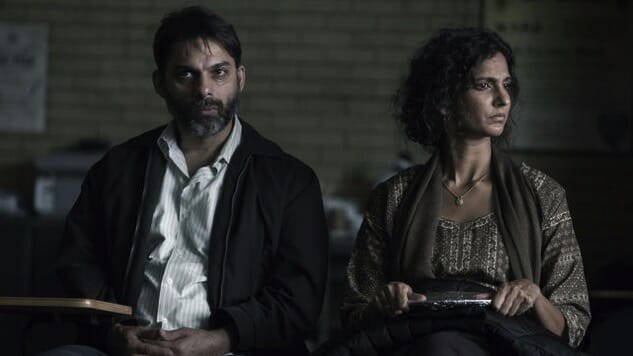In Spite of Its Flaws, The Night Of Still Challenges Islamophobia with an Everday Muslim Family

The effusive praise suggested that the show was near flawless. And while it wasn’t quite generic factory-line crime fare with the mere sheen of HBO prestige as some have argued, The Night Of was still in actuality one of the most frustrating shows of the year so far—frustrating because it was so outstanding in certain moments, and so clumsily handled in others. It had logical lapses (couldn’t Naz wait the short time before his trial was over to shave his head and color himself in sinister tattoos?), a casual disregard for its female characters, and an insistence on making John Stone’s eczema into a labored metaphor for the judicial system.
Perhaps nothing about The Night Of was more problematic, though, than its approach to race. This was a show that touted some supremely on-the-nose dialogue (“You want Jew time? Do a Jew crime”) and dealt with people of color—particularly African Americans —in frequently uncomfortable ways. It’s somewhat shocking that a writer for The Wire, a landmark show that dealt with the subject of race relations in a major American city with such sensitivity, handled similar themes in The Night Of so clunkily. Though Richard Price, the aforementioned Wire alum, and co-creator Steven Zaillian did at least get one thing in that area spot-on.
Price and Zaillian added detail and updated the setting, but The Night Of’s plot very closely resembles that of Season One of Criminal Justice, the 2008 British crime procedural that inspired HBO’s latest big-budget mini. Their storylines are almost identical, down to the detective on the asthmatic main character’s case removing his inhaler from the crime scene because “it doesn’t fit.” In expanding the number of episodes from five to eight, the writers of the US remake go deeper into a frustratingly bureaucratic and imbalanced system, but there’s only really one major difference between the two shows: whereas in Criminal Justice the accused was white British, in The Night Of he is a Pakistani-American Muslim.
It’s a very deliberate change, affecting our lead character’s case in ways that are immediately obvious. The young, educated white man of Criminal Justice isn’t so easily dismissed as a murderer, but The Night Of’s Asian male, a Muslim? Well, straight away we recognize how suspicious that looks to a society that hasn’t looked the same way at a brown-skinned person with an accent, since September 11, 2001.
The Night Of spends eight episodes and nine hours challenging this prejudice in a way that’s often in sharp opposition to its bluntness elsewhere. Some of the show’s characters border on cartoonish, including those within the Queens Muslim community Naz hails from (those Middle-Eastern music cues!), but not Naz himself. He’s quiet, ordinary and awkward in extreme situations. He’s an everyman, a stand-in for you and me. The Night Of replaces the white male that often inhabits this character type with a Muslim, forcing us to feel the sting of Islamophobia from the other side, and—crucially—identify with a minority that has lately been regularly vilified.
It’s pure luck that The Night Of arrived in 2016, a year of resurgent bigot populism, a year in which unscrupulous politicians have seized upon the migrant crisis and the flowering of ISIS to push an anti-minority agenda. The show actually went into development years ago: Barack Obama had only just finished his first term and the Islamic State didn’t yet exist when the show’s pilot shot, with James Gandolfini in the John Stone role, back in 2012. The project stalled following Gandolfini’s death, then Robert De Niro became attached in 2013 and was replaced by John Turturro a year later, before the full series finally shot for a 2016 airing.
-

-

-

-

-

-

-

-

-

-

-

-

-

-

-

-

-

-

-

-

-

-

-

-

-

-

-

-

-

-

-

-

-

-

-

-

-

-

-

-








































